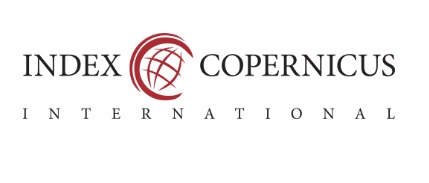The devolution of the inheritance management toward the beneficiaries in Klang Valley, Malaysia
Abstract
Aim: This paper assesses the degree of knowledge regarding the allocation of property management assets upon death in the Klang Valley region of Malaysia. The researcher hopes to identify the root causes of the public’s difficulties with the three estate and property distribution methods recognized by Sharia law: the afraid, the wasiat, and the hibah.
Method: Four (4) estate management agencies in Malaysia (Majlis Agama Islam Selangor [MAIS]), As-Salihin Trustee Berhad [ASTB], Amanah Raya Berhad [ARB], and Wasiyyah Shoppe Sdn. Bhd.) were interviewed for this study to collect primary data.
Findings: The findings of this study indicate that the procedure of dividing property through inheritance was not carried out because of a lack of understanding regarding inheritance in the community and a lack of knowledge regarding the inheritance of a property that occurred. Problems as large as those affecting the global economy can be exacerbated by a cascade of cases that increase and indirectly withhold assets. To ensure future social and economic relations and to prevent further complexity and confusion in estate management, it is evident that a mechanism must be put into place.
Implications/Novel Contribution: Similar to "grant" (donation) and facts in Malaysia, the research is significant because it provides a level of public understanding and information about property management in the event of death.
References
Ambikai, A., & Ishan, Z. (2016). Comparative analysis of law on tort of deviant behaviors in Malaysia and India. Journal of Advances in Humanities and Social Sciences, 2(4), 243-249. doi:https://doi.org/10.20474/jahss-2.4.5
Boniface, A. E. (2016). Animals: ‘objects’ or ‘sentient beings’? A comparative perspective of the South Africanlaw. Journal of Advances in Humanities and Social Sciences, 2(3), 143-155. doi:https://doi.org/10.20474/jahss-2.3.3
Djumadi, A. H. B. (2018). The urgency of harmonization between investment law in Indonesia and international law in capital investment disputes resolution. Journal of Advances in Humanities and Social Sciences, 4(3), 154-160. doi:https://doi.org/10.20474/jahss-4.3.4
Harun, W. A. H. W. (2011). Managing property: The basis of property distribution. Kuala Lumpur, Malaysia: PTS Media Group Sdn Bhd.
Hasan, N. M., Zain, R. M., Rahman, M. F. A., & Mustapha, I. (2009). The use of a neutron backscatter technique for in-situ water measurement in paper-recycling industry. Applied Radiation and Isotopes, 67(7-8), 1239-1243. doi:https://doi.org/10.1016/j.apradiso.2009.02.020
Hussin, R., Rashid, R. A., & Yaakub, N. I. (2015). A preliminary study on compulsory acquisition of waqf land inMalaysia. In Proceedings of the International Conference on Waqf, Bangkok, Thailand.
Kamarudin, M. K., & Alma’amun, S. (2013). Analysing the knowledge and practice of hibah (inter vivos gift) within the contextual form of islamic estate planning in Malaysia: Variations across control variables. Prociding Perkem VIII, 3, 1280-1290.
Maziyar, S. (2018). Institutional arbitration versus Ad Hoc Arbitration: Chinese And Iranian perspectives. Journal of Advanced Research in Social Sciences and Humanities, 3(4), 148-153. doi:https://doi.org/10.26500/jarssh-03-2018-0404
Mustafa, Z., Tasir, S. F., Jusoh, N. A. M., et al. (2018). The concept of aurah: Islamic dressing code and personal grooming according to fiqh law. Academia Journal, 7(2), 56-70. doi:https://doi.org/10.24191/e-aj.v7i2.4682
Rashid, R. A., & Ahmad, N. H. (2013). Property management through change: The benefits and benefits of aspect missions for men’s provision (grants wealth management: The important and benefit from various aspects for ummah development). Hadhari Journal: An International Journal, 5(1), 91-104.
Sitiris, M., & Halim, A. (2010). The claim of separatory property in the case of death. Kanun, 22(1), 26-46. The Balanace. (2019). What happens to the inheritance of a minor beneficiary. Retrieved from https://bit.ly/3co4P06
Zuhayli, W., Shabuni, M. A., & Adil, A. R. B. M. (2009). The law of inheritance of property and faraid science. Kuala Lumpur, Malaysia: Pustaka Azhar.

This work is licensed under a Creative Commons Attribution-NonCommercial 4.0 International License.












.png)










